Willie Colón in #Danceweekend [English - Español - Deutsch]
Some time ago I wrote about one of the most outstanding singers in the Salsa, the Puerto Rican Héctor Lavoe (Hector Lavoe in #danceweekend (English-Spanish-Deutsch)) and there I told you that this was the music that was heard in the [Barrio] where I lived from 1975. In all that story there was a guy who had become director of his own orchestra and one of the most important stars of that musical movement that had already begun to take shape in New York City with the name of "Salsa." That musician was barely 15 years old when he started with his orchestra, his name Willie Colón.
Versión en español más abajo
Deutsche Version weiter unten
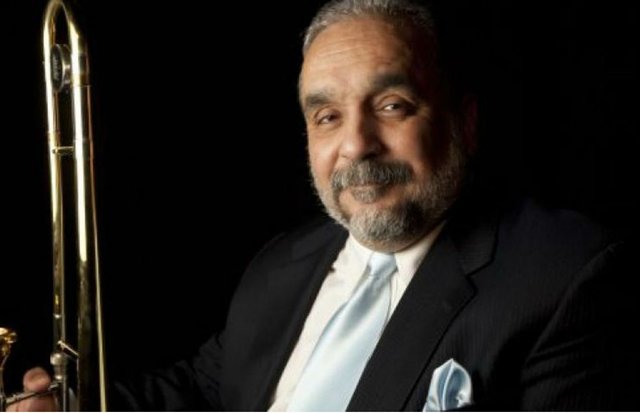
Source - Fuente - Quelle
Born in the Bronx, in New York, a descendant of Puerto Ricans, he came into contact with music from an early age, driven by his grandmother who wanted for him a better future than the one they all seemed to be destined for being Latinos.
The nickname with which he was known from the beginning was "El malo" (The bad one). They say that it was originally because he was very young, he did not have much music school and his sound was very crude, in addition to being criticized for his way of mixing different musical forms and in general what he did in the arrangements. All that led to that nickname. However, Colón knew how to take advantage of the name and turned it into an image of the "bad guy", the hard guy, the one who knows how to defend himself and that was an image that served to denounce with his music the situation that the Latinos lived, it was a way of rebelling, it was part of a musical insurrection.
At age 17 he became part of the Fania. From there he was the protagonist of the two most productive musical combinations that have been in that Latin genre. It was first with Héctor Lavoe, from 1967 to 1974 and then with Rubén Blades, with whom he spent years, between producing records and fighting... Those two were key pieces in the career of this musician, arranger, composer and producer.
However, after these experiences and tired of having to deal with other singers, he launched himself as a solo singer. At first nobody wanted to see him in that facet, but he soon showed that he could also stand out in that area.
This musician is owed much of what became known as the "New York Salsa". A fundamental characteristic of Colón is always to be innovating. When everyone believed that he had found a "formula" or a "recipe" he presented himself with something new and imposed it again.
One of the things that criticized him in his beginnings, was what he considered his key to success: mixing Caribbean and Latin American musical rhythms and genres. Because as he says himself: "Salsa is not a rhythm, it is a way of making music".Undoubtedly the repertoire that he composed, produced or accompanied and that has been recorded in more than 60 albums, gives a living sample of it.
Apart from the two aforementioned combinations, Willie Colón recorded with the most outstanding Salsa performers of all time, among them Celia Cruz, Ismael Miranda, Ray Barreto and Tito Puente.
It was that "raw sound" in his trombone and avant-garde arrangements that caused me the greatest impact and in fact, he managed to become one of my biggest references in the genre. I owe him the love I feel for the trombone...
He still remains active, despite his constant threats of retirement, which becomes a trajectory of more than 50 years being a vanguard and model in the musical field.
> Music at the end of this post!

Español
Hace algún tiempo escribí acerca de uno de los cantantes más destacados en la Salsa, el puertorriqueño Héctor Lavoe (Hector Lavoe in #danceweekend (English-Español-Deutsch) y allí les comentaba que esa era la música que se escuchaba en el barrio donde yo viví a partir de 1975. En toda esa historia había un personaje que se había convertido en director de su propia orquesta y en una de las estrellas más importantes de ese movimiento musical que ya había empezado a tomar forma en la ciudad de Nueva York con el nombre de “Salsa”. Ese músico apenas tenía 15 años de edad cuando empezó con su orquesta, su nombre Willie Colón.
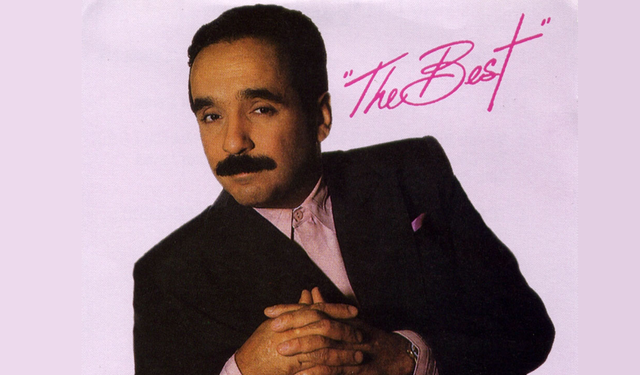
Source - Fuente - Quelle
Nacido en el Bronx, en Nueva York, descendiente de puertorriqueños, entró en contacto con la música desde muy pequeño, impulsado por su abuela que quería para él un futuro mejor que aquel al que todos ellos parecían destinados por ser latinos.
El apodo con el que se le conoció desde el comienzo fue “El malo”. Dicen que originalmente se debió a que era muy joven, no tenía mucha escuela musical y su sonido era muy crudo, además de que le criticaban por su forma de mezclar distintas formas musicales y en general lo que hacía en los arreglos. Todo eso llevó a que le colocaran ese mote. Sin embargo, Colón supo aprovechar el nombre y lo convirtió en imagen del “tipo malo”, del duro, del que sabe defenderse y esa era una imagen que le servía para denunciar con su música la situación que vivían los latinos, fue una forma de rebelarse, fue parte de una insurrección musical.
A los 17 años pasó a formar parte de la Fania. Desde allí fue protagonista de las dos combinaciones más productivas musicalmente que ha habido en ese género latino. Primero fue con Héctor Lavoe, desde 1967 hasta 1974 y luego con Rubén Blades, con quien pasó años, entre producir discos y pelearse… Esas dos juntas fueron piezas claves en la carrera de este músico, arreglista, compositor y productor.
Sin embargo, luego de estas experiencias y cansado de tener que lidiar con otros cantantes, se lanzó como cantante solista. Al principio nadie lo quería ver en esa faceta, pero pronto demostró que también en ese terreno podía destacarse.
A este músico se debe gran parte de lo que se dio a conocer como la “Salsa neoyorquina”. Una característica fundamental de Colón es siempre estar innovando. Cuando ya todos creían que había encontrado una “fórmula” o una “receta” él se presentaba con algo nuevo y volvía a imponerlo.
Una de las cosas que le criticaban en sus inicios, fue lo que él consideró su llave al éxito: mezclar los ritmos y géneros musicales caribeños y latinoamericanos. Porque como dice él mismo: "La salsa no es un ritmo, es una forma de hacer música". Sin duda el repertorio que compuso, produjo o acompañó y que ha quedado plasmado en más de 60 discos, dan muestra viva de ello.
Aparte de las dos combinaciones antes mencionadas, Willie Colón grabó con los más destacados intérpretes de la Salsa de todos los tiempos, entre ellos Celia Cruz, Ismael Miranda, Ray Barreto y Tito Puente.
Fue ese “sonido crudo” en su trombón y arreglos de vanguardia lo que a mí me causo mayor impacto y de hecho, logró en convertirse en una de mis mayores referencias dentro del género. A él le debo el amor que siento por el trombón…
Aún se mantiene activo, a pesar de sus constantes amenazas de retiro, lo que se convierte en una trayectoria de más de 50 años siendo vanguardia y modelo en el campo musical.
> ¡Música al final de esta publicación!

Deutsch
Vor einiger Zeit schrieb ich über einen der herausragendsten Sänger der Salsa, den puerto-ricanischen Héctor Lavoe (Hector Lavoe in #danceweekend (English-Spanish-Deutsch)). Da erzählte ich dass dies die Musik war, die in dem [Barrio] wo ich seit 1975 lebte zu hören war. In dieser ganzen Geschichte gab es einen Kerl, der Direktor seines eigenen Orchesters wurde, und einer der wichtigsten Stars dieser musikalischen Bewegung, die in New York City bereits als "Salsa" Gestalt angenommen hatte. Dieser Musiker war gerade 15 Jahre alt, als er mit seinem Orchester anfing. Sein Name: Willie Colón.
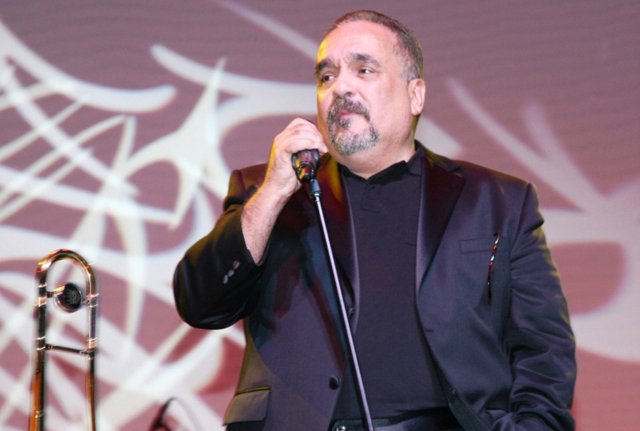
Source - Fuente - Quelle
In den Bronx, in New York, geboren, Nachkomme von Puerto-Ricaner, kam er schon früh mit Musik in Berührung, angetrieben von seiner Großmutter, die ihm eine bessere Zukunft wünschte als die, die sie alle als Latinos bestimmt zu sein schienen.
Der Spitzname, mit dem er von Anfang an bekannt war, war "El malo" (Der schlechte). Es wird gesagt, dass es ursprünglich so war, weil er sehr jung war, er keine große Musikschule hatte und sein Sound sehr rau war, zusätzlich dazu wurde es kritisiert dass er verschiedene musikalische Formen mischte und was er in den Arrangements im Allgemeinen tat. All das führte zu diesem Spitznamen. Colón wusste jedoch, wie er den Namen ausnutzen konnte, und verwandelte ihn in ein Image des "Bösen", des Harten, desjenigen, der sich zu verteidigen weiß, und das war ein Image, das mit seiner Musik die Situation dass die Latinos lebten anprangerte, es war eine Art Rebellion, es war Teil eines musikalischen Aufstands.
Mit 17 Jahren wurde er Teil der Fania. Von dort war er der Protagonist der beiden produktivsten Musikkombinationen, die in diesem lateinischen Genre zu finden waren. Es war zuerst mit Héctor Lavoe, von 1967 bis 1974 und dann mit Rubén Blades, mit dem er mehrere Jahre verbrachte, zwischen Platten produzieren und miteinander streiten. Diese beiden waren Schlüsselstücke in der Karriere dieses Musikers, Arrangeurs, Komponisten und Produzenten.
Nach diesen Erfahrungen und der Müdigkeit mit anderen Sängern kämpfen zu müssen, startete er als Solosänger. Zuerst wollte ihn niemand in dieser Facette sehen, aber er zeigte bald, dass er auch in diese Job hervorstechen konnte.
Diesem Musiker ist viel zu verdanken, was als "New York Salsa" bekannt wurde. Ein grundlegendes Merkmal von Colón ist immer die Innovation. Als alle glaubten, er hätte eine "Formel" oder ein "Rezept" gefunden, stellte er sich etwas Neues vor und verhängte es wiedermal.
Was ihm am anfangs kritisierten findet er als seinen Schlüssel zum Erfolg: Die mischung von karibische und lateinamerikanische musikalische Rhythmen und Genres. Denn wie er selbst sagt: "Salsa ist kein Rhythmus, es ist eine Art Musik zu machen". Zweifellos ist das Repertoire, das er komponierte, produzierte oder begleitete und in mehr als 60 Alben aufgenommen wurde, eine lebende Probe davon.
Neben den beiden zuvor genannten Kombinationen nahm Willie Colón mit den herausragendsten Salsa-Künstlern aller Zeiten auf, darunter Celia Cruz, Ismael Miranda, Ray Barreto und Tito Puente.
Dieser "rohe Sound" seiner Posaune und seine Avantgarde-Arrangements haben mich am meisten beeindruckt und er hat es tatsächlich geschafft, eine meiner größten Referenzen im Genre zu werden. Ich schulde ihm die Liebe, die ich für die Posaune empfinde...
Er ist immer noch aktiv, obwohl er ständig mit der Zurückziehung bedroht, was zu einer über 50-jährigen Laufbahn wird und als Vorreiter und Vorbild im musikalischen Bereich gilt.

Music – Música – Musik
Todo tiene su final - Willie Colón & Héctor Lavoe
Buscando Guayaba - Willie Colón & Ruben Blades
Usted abusó - Willie Colón & Celia Cruz
Amor verdadero - Willie Colón
Idilio - Willie Colón
# This post was created for the #danceweekend tag, created by @uwelang
# Este artículo fue creado para el tag #danceweekend, creado por @uwelang
# Dieser Beitrag wurde für das von @uwelang erstellte Tag #danceweekend geschrieben

Posted from my blog with SteemPress : http://ylich.com/blog/willie-colon-in-mymusic/

Follow - Upvote - Resteem
Recent posts / Artículos recientes / Kürzliche Posts
- Daniel, a long history friendship
- Potpourrí de gaitas - Christmas music / Música navideña / Weihnachtsmusik
- Silvio Rodríguez in #MyMusic
- Lentils for the New Year - Another tradition | Lentejas para recibir el año - Otra tradición | Linsen fürs Neujahr - Eine andere Tradition
- Un pernil para cerrar el año | Eine Keule zum Jahresende | A pork leg to end the year
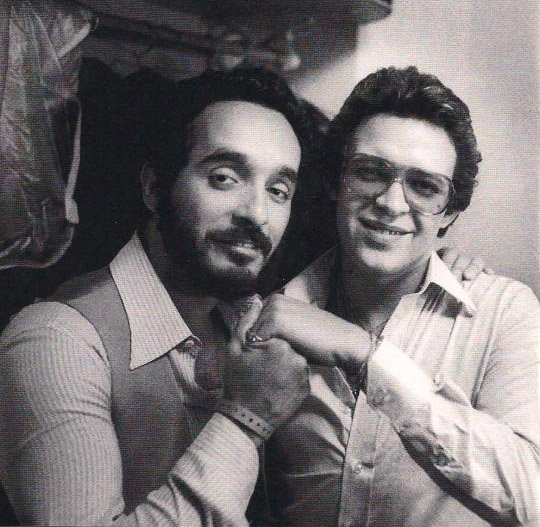
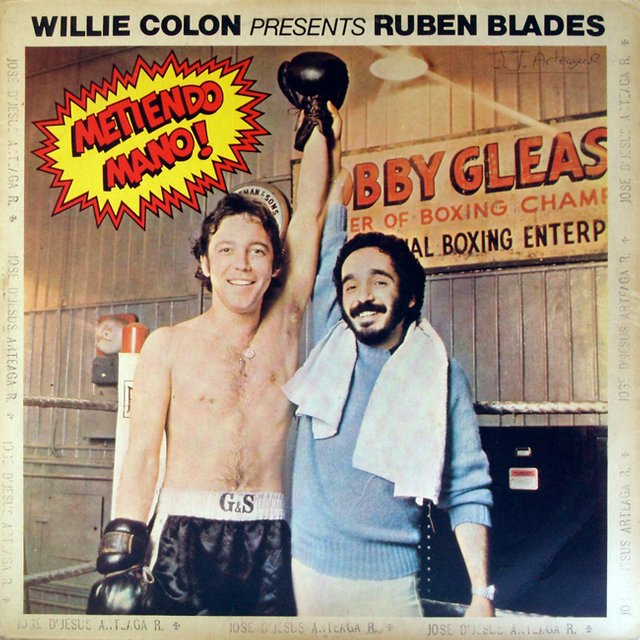
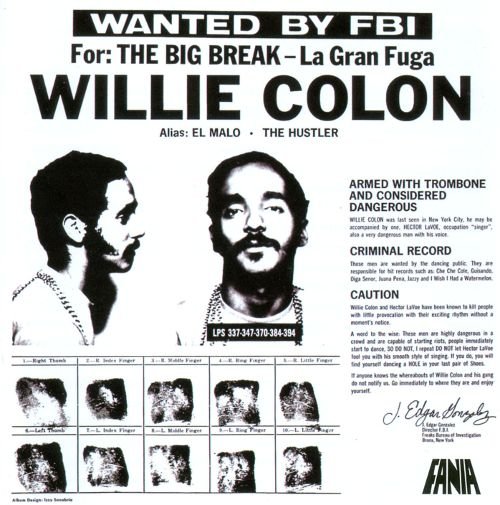
Guten Tag,
Mein Name ist GermanBot und du hast von mir ein Upvote erhalten. Als UpvoteBot möchte ich dich und dein sehr schönen Beitrag unterstützen. Jeden Tag erscheint ein Voting Report um 19 Uhr, in dem dein Beitrag mit aufgelistet wird. In dem Voting Report kannst du auch vieles von mir erfahren, auch werden meine Unterstützer mit erwähnt. Schau mal bei mir vorbei, hier die Votings Reports. Mach weiter so, denn ich schaue öfter bei dir vorbei.
Euer GermanBot
Congratulations! This post has been upvoted from the communal account, @minnowsupport, by stimu from the Minnow Support Project. It's a witness project run by aggroed, ausbitbank, teamsteem, someguy123, neoxian, followbtcnews, and netuoso. The goal is to help Steemit grow by supporting Minnows. Please find us at the Peace, Abundance, and Liberty Network (PALnet) Discord Channel. It's a completely public and open space to all members of the Steemit community who voluntarily choose to be there.
If you would like to delegate to the Minnow Support Project you can do so by clicking on the following links: 50SP, 100SP, 250SP, 500SP, 1000SP, 5000SP.
Be sure to leave at least 50SP undelegated on your account.
Excelente referencia a este notable artista de la salsa, de múltiples éxitos en tantos años. Willie se aparece de repente, y pega lo que grabe actualmente.
Muchas gracias, amigo. Así es, un artista de gran talla que lo que hace lo pega... ;-)
Este post ha sido votado por el proyecto @templo en colaboración con @steempress-io.
¡Muy agradecido por este excelente apoyo!